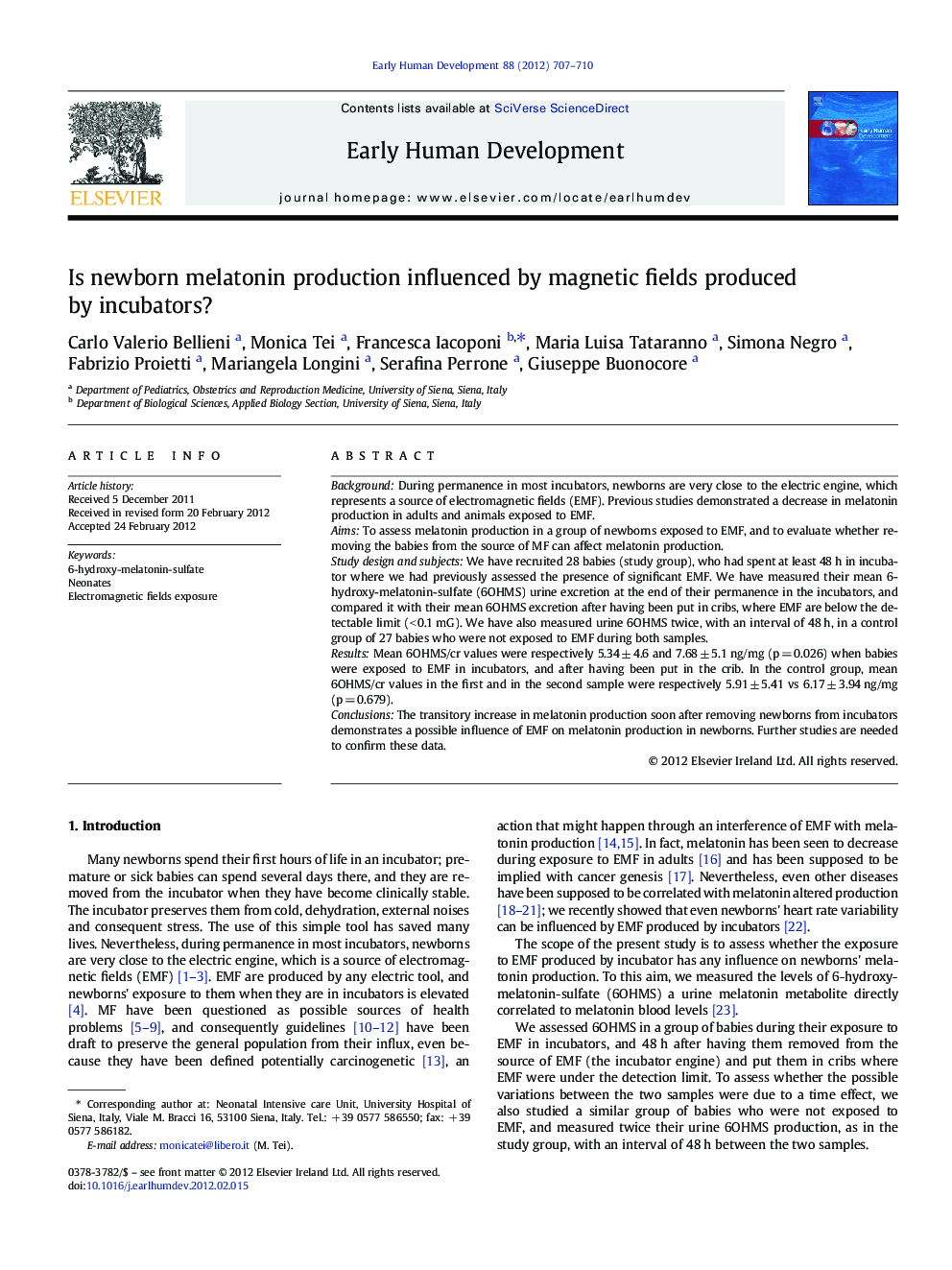| Article ID | Journal | Published Year | Pages | File Type |
|---|---|---|---|---|
| 3916861 | Early Human Development | 2012 | 4 Pages |
BackgroundDuring permanence in most incubators, newborns are very close to the electric engine, which represents a source of electromagnetic fields (EMF). Previous studies demonstrated a decrease in melatonin production in adults and animals exposed to EMF.AimsTo assess melatonin production in a group of newborns exposed to EMF, and to evaluate whether removing the babies from the source of MF can affect melatonin production.Study design and subjectsWe have recruited 28 babies (study group), who had spent at least 48 h in incubator where we had previously assessed the presence of significant EMF. We have measured their mean 6-hydroxy-melatonin-sulfate (6OHMS) urine excretion at the end of their permanence in the incubators, and compared it with their mean 6OHMS excretion after having been put in cribs, where EMF are below the detectable limit (< 0.1 mG). We have also measured urine 6OHMS twice, with an interval of 48 h, in a control group of 27 babies who were not exposed to EMF during both samples.ResultsMean 6OHMS/cr values were respectively 5.34 ± 4.6 and 7.68 ± 5.1 ng/mg (p = 0.026) when babies were exposed to EMF in incubators, and after having been put in the crib. In the control group, mean 6OHMS/cr values in the first and in the second sample were respectively 5.91 ± 5.41 vs 6.17 ± 3.94 ng/mg (p = 0.679).ConclusionsThe transitory increase in melatonin production soon after removing newborns from incubators demonstrates a possible influence of EMF on melatonin production in newborns. Further studies are needed to confirm these data.
